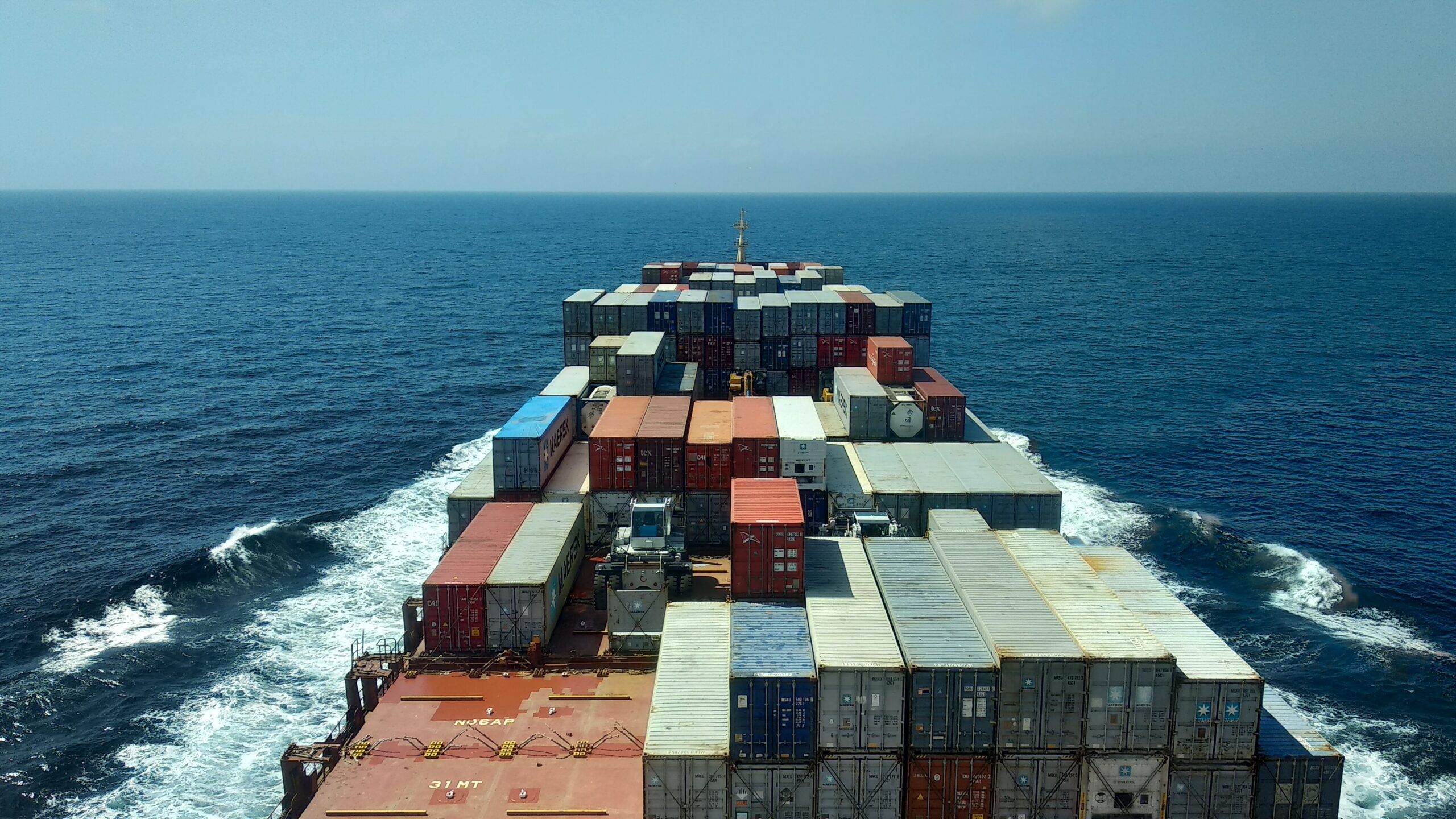Why Canada Should Stay the Course on Ambitious Targets to Reduce Marine Emissions
Credit: Rinson Chory
Shipping emissions are out of sight, out of mind for most Canadians. Yet worldwide, the industry generates over 1 billion tonnes of greenhouse gas (GHG) emissions each year and is directly contributing to the record heatwaves, forest fires, and extreme weather we experienced this summer. To fight climate change, we need to reduce emissions from as many industries as possible—including shipping.
While many Canadian cities were blanketed in smoke this July, the International Maritime Organization (IMO) hosted member states from around the world at its London headquarters to revise the organization’s roadmap for reducing global shipping emissions. The new targets—which include a 10 percent clean fuel standard and a 30 percent reduction in emissions by 2030 compared to 2008 levels—are an important signal that the industry will fully decarbonize by 2050.
The targets are not quite enough to reduce emissions in line with the Paris Agreement, which is what scientists say is necessary to avert the worst impacts of climate change. However, we are closer than ever before, and the time is now ripe for global leaders to push the sector faster and further. During the meetings, Canada made a joint submission with the United Kingdom and the United States that advanced more aggressive targets than the organization ultimately adopted. To fight climate change and secure our future prosperity, Canada should stay the course on its ambitious emissions-reduction targets—and come up with a plan to do so.
While Canada is just one country, a national plan to decarbonize marine industries could help spark global change, and our leadership in this space matters. For ships transiting between nations around the world, rules set by one nation for any of a ship’s stops could require substantial updates to the ship’s engine/fuel technology, creating climate benefits beyond national borders. For example, the newly adopted FuelEU regulation in Europe requires any vessel arriving at or leaving a European Union port to reduce the GHG emissions of its fuel, regardless of its global destination or starting point. The more jurisdictions along a ship’s route that have emissions rules and an available supply of zero-emission shipping fuel, the more motivation there will be for the industry to make urgent changes. This means that effective action by Canada to restrict shipping emissions at the national level would have a global impact, helping the industry sail past the insufficient IMO targets.
A strong national marine decarbonization plan would also provide opportunities for Canada’s energy industry to lead in the development of hydrogen-derived fuels, which will play a key role in the global maritime energy transition. Our new report, the Canadian Green Shipping Corridors Assessment, highlights the positive impacts marine decarbonization could have on Canada’s economy, environment, and coastal communities if developed responsibly. Investments in zero-emission shipping fuels will minimize Canada’s climate transition risk in its energy and transport sectors, and it creates opportunities to unlock the economies of scale needed to decarbonize long-haul trucking, rail, aviation, and other fuel-intensive sectors.
A scan of Government of Canada incentives shows that many of the programs to support the development of zero-emission shipping fuels and marine technologies are already in place. In addition to the recently announced Green Shipping Corridor Fund, there are a core set of existing incentives that could be leveraged to reduce marine emissions. For example, government strategies to promote the adoption of zero-emission vehicles and charging stations could be expanded to include vessels and ports; the Hydrogen Tax Credit, the Clean Fuels Fund, and the Net-Zero Accelerator Initiative could equally be applied to the marine sector.
Abacus public opinion research shows that Canada’s leadership on marine decarbonization is broadly supported by Canadians. When informed about the huge and growing problem of marine emissions, 8 in 10 Canadians believe investments in shipping and port decarbonization should be a priority. The majority of Canadians also believe investments should support zero-emission solutions rather than half-measures like using liquefied natural gas as a shipping fuel.
Taking action to reduce marine emissions is not a partisan issue; the majority of Canadians want to see it happen, and they understand the link between burning fossil fuels and the extreme weather and fires prevalent across the country. As a maritime trading nation surrounded by three oceans, Canada has an important role in producing the fuels of the future and influencing its trading partners. It is time to think globally and act locally.
Brent Dancey is the Director of Marine Climate Action at Oceans North.




